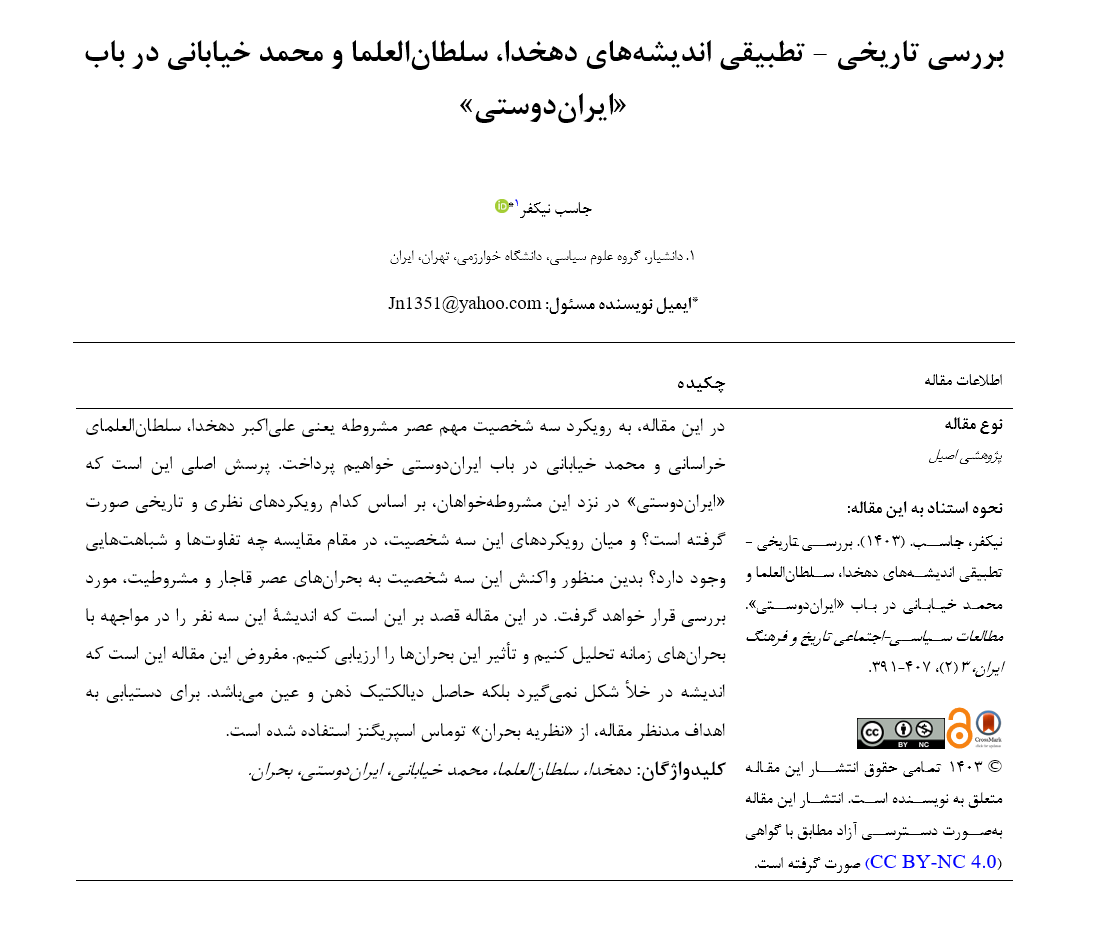A Historical-Comparative Examination of the Thoughts of Dehkhoda, Soltan al-Olama, and Mohammad Khiabani on “Persophilia”
Keywords:
Dehkhoda, Sultan Ulama, Mohammad Khabani, Iran friendship, crisisAbstract
This article examines the approaches of three prominent figures of the Constitutional Era—Ali Akbar Dehkhoda, Soltan al-Olama Khorasani, and Mohammad Khiabani—regarding Persophilia. To achieve the objectives of the study, Thomas Spragens’ “Crisis Theory” has been employed. The central question is: Based on which theoretical and historical approaches did these constitutionalists conceptualize “Persophilia”? And what are the similarities and differences among the approaches of these three figures in a comparative framework? To this end, the responses of these three individuals to the crises of the Qajar and Constitutional periods are analyzed. The aim of the article is to analyze the thought of these three thinkers in confronting the crises of their time and to assess the impact of these crises on their ideas. The underlying assumption of this article is that thought does not emerge in a vacuum but is the result of a dialectical relationship between mind and reality.
Downloads
References
Agheli, B. (1991). Iranian prime ministers from Moshiroddoleh to Bakhtiar. Javidan Publications.
Azari, A. (1983). The uprising of Sheikh Mohammad Khiabani in Tabriz. Safi Alishah Publications.
Bastani Parizi, M. E. (1968). The struggle for freedom (The political environment and life of Moshiroddoleh Pirnia). Elmi Publications.
Brown, E. G. (2007). The press and literature in the constitutional era of Iran. Nashr-e Elm.
Cohen, G. (1983). The history of censorship in Iranian press (Vol. 1). Agah Publications.
Dehkhoda, A. A. (2015). Charand-o-Parand. Farhang-e Jame’ Publications.
Kasravi, A. (2009). Eighteen years history of Azerbaijan. Hermes Publications.
Khiabani, B. Speeches of Sheikh Mohammad Khiabani. n.p.
Mostowfi, A. (1998). The story of my life. Zavvar Publications.
Raisnia, R., & Nahid, A. (1976). Two fighters of the constitutional movement: Sattar Khan and Sheikh Mohammad Khiabani. Agah Publications.
Spragens, T. (1991). Understanding political theory. Agah Publications.








